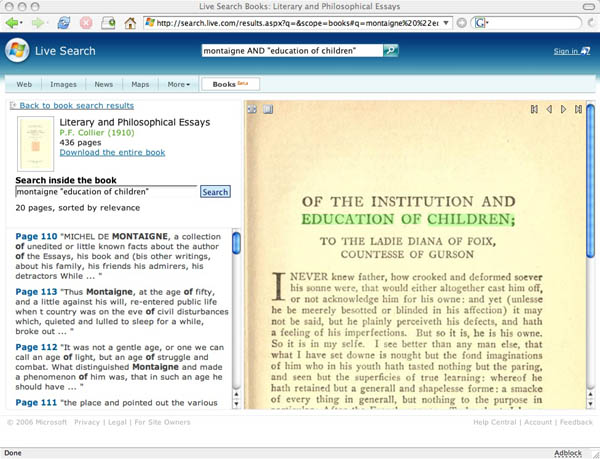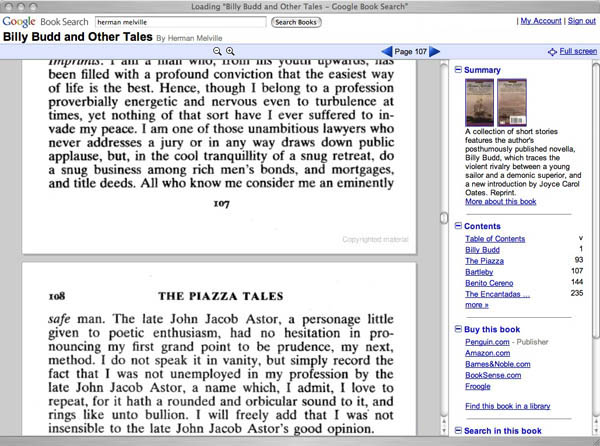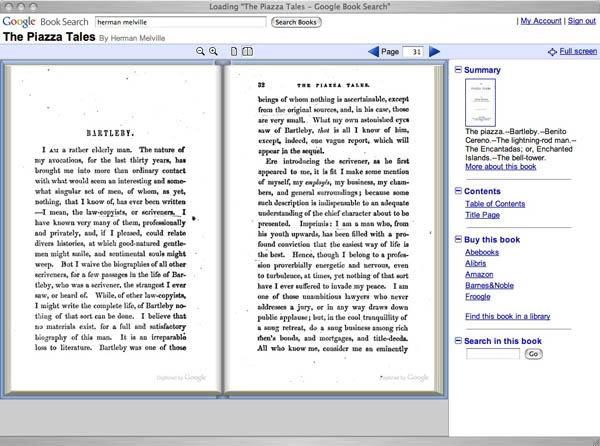I finally got around to reading Nicholson Baker’s essay in the New York Review of Books, “The Charms of Wikipedia,” and it’s… charming. Baker has a flair for idiosyncratic detail, which makes him a particularly perceptive and entertaining guide through the social and procedural byways of the Wikipedia mole hill. Of particular interest are his delvings into the early Wikipedia’s reliance on public domain reference works, most notably the famous 1911 Encyclopedia Britannica: “The fragments from original sources persist like those stony bits of classical buildings incorporated in a medieval wall.”
Baker also has some smart things to say on the subject of vandalism:
Wikipedians see vandalism as a problem, and it certainly can be, but a Diogenes-minded observer would submit that Wikipedia would never have been the prodigious success it has been without its demons.
This is a reference book that can suddenly go nasty on you. Who knows whether, when you look up Harvard’s one-time warrior-president, James Bryant Conant, you’re going to get a bland, evenhanded article about him, or whether the whole page will read (as it did for seventeen minutes on April 26, 2006): “HES A BIG STUPID HEAD.” James Conant was, after all, in some important ways, a big stupid head. He was studiously anti-Semitic, a strong believer in wonder-weapons – ?a man who was quite as happy figuring out new ways to kill people as he was administering a great university. Without the kooks and the insulters and the spray-can taggers, Wikipedia would just be the most useful encyclopedia ever made. Instead it’s a fast-paced game of paintball.
Not only does Wikipedia need its vandals – ?up to a point – ?the vandals need an orderly Wikipedia, too. Without order, their culture-jamming lacks a context. If Wikipedia were rendered entirely chaotic and obscene, there would be no joy in, for example, replacing some of the article on Archimedes with this:
Archimedes is dead.
He died.
Other people will also die.
All hail chickens.
The Power Rangers say “Hi”
The End.
Even the interesting article on culture jamming has been hit a few times: “Culture jamming,” it said in May 2007, “is the act of jamming tons of cultures into 1 extremely hot room.”




